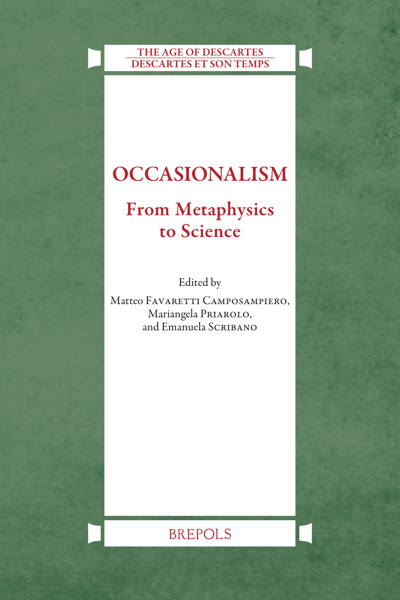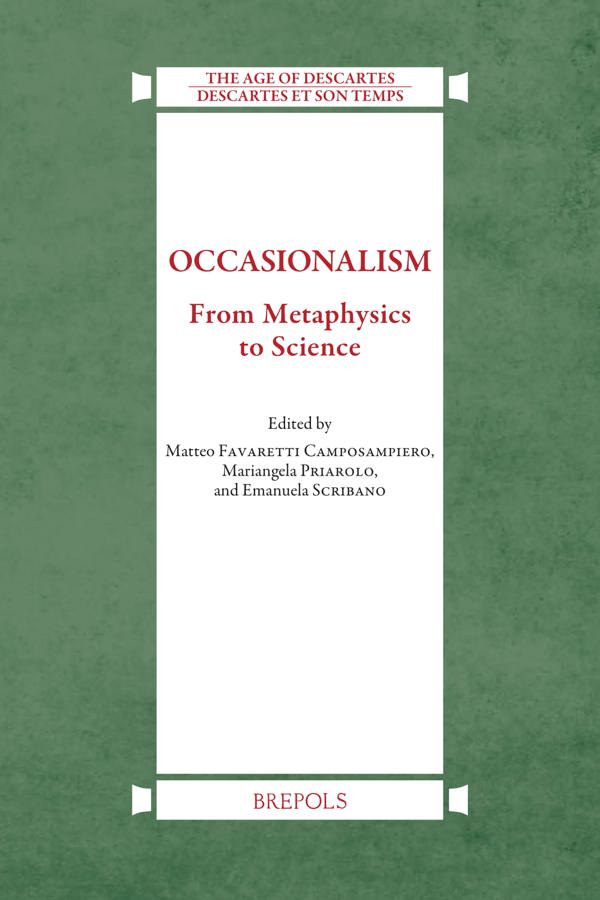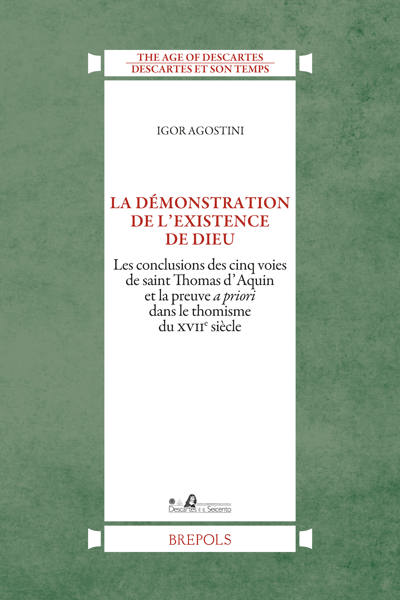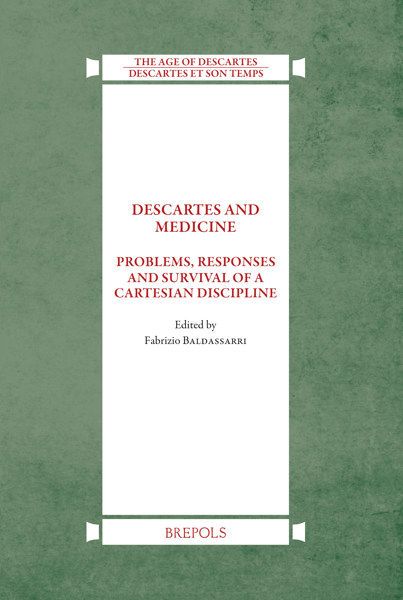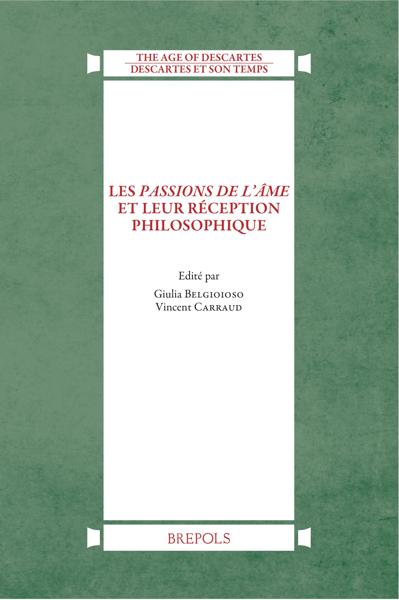
Occasionalism: From Metaphysics to Science
Matteo Favaretti Camposampiero, Mariangela Priarolo, Emanuela Scribano (eds)
- Pages: 293 p.
- Size:156 x 234 mm
- Illustrations:5 tables b/w.
- Language(s):English, French
- Publication Year:2019
- € 70,00 EXCL. VAT RETAIL PRICE
- ISBN: 978-2-503-57817-0
- Paperback
- Available
- € 70,00 EXCL. VAT RETAIL PRICE
- ISBN: 978-2-503-57818-7
- E-book
- Available
"Un des mérites de ce recueil est de montrer comment la doctrine souvent unilateralement attribuée a Malebranche s’enracine en fait dans une histoire longue, qui a son point d’ancrage dans la théologie de l’ère arabo-musulmane (...) Le second mérite de ce recueil est de montrer que l’histoire moderne de l’occasionnalisme prend sa source dans un double problème (ou dans deux problèmes qui ne sont pas complètement distincts) : la question metaphysique de la création continuée – dans son articulation aux lois de la nature et a la conservation de la quantité de mouvement – et la question psycho-physiologique du mind-body problem chez les premiers commentateurs du Traité de l’Homme de Descartes (Louis de La Forge et Geraud de Cordemoy). (...) Cet éclairage particulièrement bienvenu sur le contexte ≪ cartesien ≫ de l’occasionnalisme permet enfin de faire beaucoup mieux comprendre la spécificité de l’occasionnalisme malebranchien, qui n’est en somme qu’un occasionnalisme parmi d’autres" (Edouard Mehl in: Revue philosophique de la France et de l'étranger, 2020/1, p. 81)
“This volume contains other essays that will be attractive to scholars of seventeenth-century philosophy, especially to those with an interest in early modern theories of causation.” (Fred Ablondi, in Journal of the History of Philosophy, 58/2, 2020, p. 405)
Traditionally interpreted as an outcome of Cartesian dualism, in recent years occasionalism has undergone serious reassessment. Scholars have shifted their focus from the post-Cartesian debates on the mind-body problem to earlier discussions of body-body issues or even to the problem of causation as such. Occasionalism appears less and less a cheap solution to the mind-problem and more and more a family of theories on causation, which share the fundamental claim that all genuine causal powers belong to God. So why did the most spectacular emergence of occasionalism take place precisely in the post-Cartesian era? How did the scientific revolution and the need to fight back against the early modern resurgence of naturalism contribute to the success of occasionalist doctrines?
This book provides a historical and theoretical map of occasionalism in all its various forms, with a special focus on its seventeenth-century supporters, adversaries, and polemical targets. These include not only canonical authors such as Cordemoy, La Forge, Malebranche, Spinoza, and Leibniz, but also less explored figures such as Clauberg, Clerselier, Fénelon, Fernel, Régis, and Regius. Furthermore, the book covers the earlier Arabic and Scholastic sources of occasionalism and its later developments in Berkeley, Wolff, and Hume.
Introduction (Matteo Favaretti Camposampiero, Mariangela Priarolo, Emanuela Scribano)
I. God and the World
God’s Qudra (Power) and Natural Causality: Between Falsafa and Islamic Occasionalism (Cecilia Martini Bonadeo)
Continuous Creation and Cartesian Occasionalism in Physics (Tad M. Schmaltz)
Conservation as Continuous Creation: Just Like Creation but Not Necessarily Recreation (Sukjae Lee)
Neither with Occasionalism nor with Concurrentism: The Case of Pierre-Sylvain Régis (Andrea Sangiacomo)
II. Causality and the Laws of Nature
Force de Loi: The Debate on the Laws of Nature and Malebranche’s Occasionalism (Mariangela Priarolo)
Malebranche, Occasionalism, and the Janus Faces of Law (Nicholas Jolley)
III. Minds and Bodies
Des trois notions primitives à Dieu: Le problème corps-esprit chez La Forge et chez Cordemoy (Sandrine Roux)
La Forge’s Mind-Body Problem: A Guide for the Perplexed (Steven Nadler)
The Direction of Motion: Occasionalism and Causal Closure from Descartes to Leibniz (Matteo Favaretti Camposampiero)
IV. Malebranche Reconsidered
The Motivation of Malebranche’s Occasionalism (Thomas M. Lennon)
Extensions du domaine de l’occasionalisme: Les miracles de l’Ancien Testament et la distribution de la grâce dans le Traité de la nature et de la grâce de Malebranche (Denis Moreau)
Connaissance et causalité: Les adversaires de Malebranche (Emanuela Scribano)
Index
